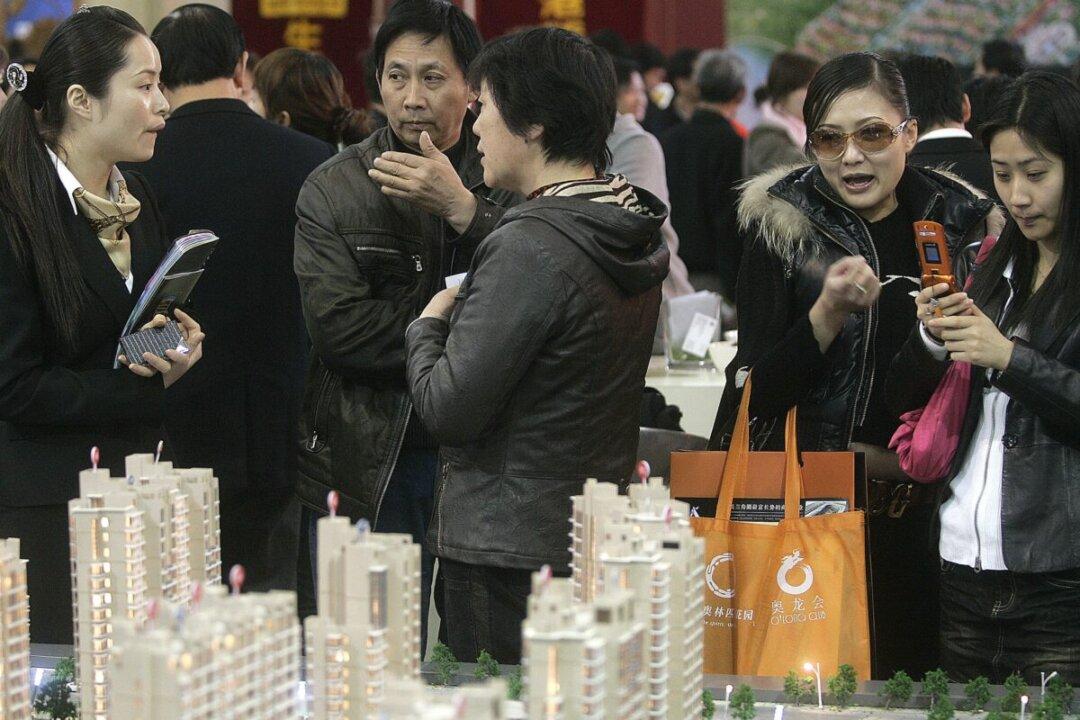A number of Chinese cities recently cut interest rates on personal first suite commercial loans and housing fund loans to boost the home buying market. However, property analysts say that China’s economy is in decline, and market confidence will not be restored by cutting interest rates alone.
Starting on Oct. 14, several banks in Tianjin decreased their first suite loan rates from 4.1 percent to 3.8 percent, and Shijiazhuang, the capital of Hebei Province, lowered its interest rate from 4.1 percent to 3.9 percent.





